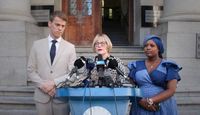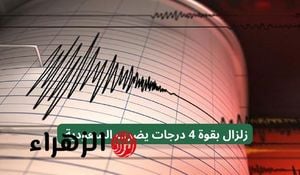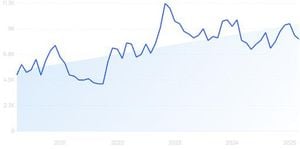The Democratic Alliance (DA) has filed an urgent application in the Western Cape High Court, seeking to overturn Parliament’s adoption of the 2025 fiscal framework and block Finance Minister Enoch Godongwana’s decision to increase the Value-Added Tax (VAT) rate. The party argues that the parliamentary process was unlawful and that the Minister’s decision to raise VAT is unconstitutional.
Led by DA Federal Council Chairperson Helen Zille, the application seeks relief in two stages: Part A aims to set aside Parliament’s adoption of the fiscal framework and suspend the VAT increase set to take effect on 1 May 2025. Part B challenges the constitutionality of Section 7(4) of the VAT Act, which allows the Minister to adjust VAT rates without prior parliamentary approval.
The VAT increase, announced in the 2025 Budget Speech on 12 March, proposes a 0.5% hike in the current financial year and another 0.5% increase next year. The DA contends that the Standing and Select Committees on Finance failed to comply with the Money Bills and Related Matters Act, which requires public hearings before approving the fiscal framework and a clear, recorded statement on whether the framework was accepted or amended. According to the DA, the final vote never took place, and the statement adopting the fiscal framework was inserted after the meeting ended.
The DA argues that Section 7(4) unlawfully transfers Parliament’s exclusive power to impose taxes to the executive. Under this provision, the Minister can alter VAT for 12 months simply by announcing it in the budget, with Parliament only required to approve it later. The DA also points out that VAT increases are irreversible—consumers cannot claim refunds for the extra tax paid, making this decision particularly impactful.
The DA warns that the VAT hike will increase the cost of goods and services, placing further strain on South African households, worsen food insecurity and financial pressures, especially for low-income earners, and violate constitutional rights, including access to adequate food and healthcare.
The 2025 fiscal framework was passed on 2 April by both the National Assembly and the National Council of Provinces (NCOP), despite fierce opposition. The DA, Economic Freedom Fighters (EFF), MKP and FF Plus voted against it. The ANC, ActionSA and smaller parties supported it. The final vote in the National Assembly was 194 in favor, 182 against.
The DA alleges that ActionSA mistakenly believed their proposal to reconsider the VAT hike would prevent the increase. However, the DA argues that the Minister’s decision will take effect regardless of non-binding recommendations from Parliament.
With the VAT increase set to take effect on 1 May 2025, the DA is pushing for urgent interim relief to prevent what it calls an unconstitutional tax hike that cannot be undone once implemented. The party also warns that if the fiscal framework adoption goes unchallenged, it will set a dangerous precedent, undermining the integrity of South Africa’s budget process.
In the court, the DA seeks to set aside Parliament’s adoption of the fiscal framework and suspend the VAT increase pending the outcome of the case. They also want a declaration that Section 7(4) of the VAT Act is unconstitutional, a ruling that the VAT increase must be reversed, and a retrospective declaration ensuring that the 2018 VAT increase remains unaffected.
Meanwhile, Finance Minister Enoch Godongwana is expected to table a tax amendment bill on Friday to debate the VAT increase. The Minister insists that the hike will mostly impact higher-income earners, while lower-income households will be cushioned through expanded benefits. At the same time, the ANC has signaled a willingness to explore alternative revenue measures, including a potential reconsideration of the VAT increase, aligning with ActionSA’s recommendations in the Standing Committee on Finance.
South Africans should brace for the 0.5 percentage point VAT increase on May 1 as Parliament on Wednesday passed the contentious 2025 Budget during a session that left the DA — which opposed the fiscal framework — at odds with its government of national unity (GNU) partners. The budget was brought to Wednesday’s joint sitting for discussion following the Standing Committee on Finance Committee’s decision on Tuesday to approve the fiscal framework on condition that the Treasury considers alternative revenue sources as opposed to imposing a 0.5 percentage point VAT increase.
According to the committee’s report approved by Parliament on Wednesday, Treasury has 30 days to identify other revenue sources to offset Treasury’s R28 billion budget deficit. “The committee recommended that the Minister of Finance facilitates the receipt of substitute revenue proposals from the committee, together with corresponding expenditure savings, that will form the basis of an alternative revenue proposal instead of the proposed 0.5 percentage point increase in VAT for the 2025/26 financial year, effective May 1, 2025,” the committee’s chairperson Joe Maswanganyi told MPs during Wednesday’s debate.
Tabled by Finance Minister Enoch Godongwana on March 12, the budget also makes no adjustment to income tax bracket creep — meaning workers who get an inflation-linked salary increase could find themselves having to pay more in taxes. In its report adopted by Parliament, the committee also recommended that the national Treasury consider other revenue generation avenues instead of income tax.
At the beginning of Wednesday’s joint sitting, some political parties — including the DA, MK Party and EFF — attempted to block the debate, arguing that the report tabled by the committee was a product of “irregular” committee processes. National Speaker Thoko Didiza ruled that the debate proceed based on “the advice I received.” However, EFF committee member Omphile Maotwe said while the party participated in the debate on an “illegal report,” it would take the matter to the courts.
Except for the DA and FF+, all GNU parties, including the ANC, IFP and PAC, voted in favour of the committee’s report, which was also supported by parties outside the GNU such as ActionSA, Bosa and Rise Mzansi. DA MP Mark Burke, who described the committee’s report as “farcical,” said the committee should have amended the budget instead of asking the national Treasury to do “the committee’s work.”
He stated, “We had the power to amend a bad budget and protect South Africans. That chance was spectacularly squandered by the ANC, ActionSA and IFP.” However, IFP’s Nhlanhla Hadebe hit back at the DA, saying “as the IFP, we don’t get our mandate from the DA.” As a condition for supporting the 2025 Budget, the DA wanted its senior partner in the GNU — the ANC — to expand its role in the coalition government, particularly on matters of the economy.
However, the ANC was of the view that the DA’s demands should not have been tied to its support for the Budget. Speaking at the closure of yesterday’s debate, Godongwana — who said parties opposed to the budget had only focused on the “revenue aspect and not the spending side” — suggested that the DA’s decision to oppose the budget had made the party’s position in the GNU untenable.
Out of the 376 votes cast, 194 MPs voted in favour of the budget while 182 voted against the fiscal framework. ActionSA has fiercely opposed any increase in VAT and the stealth tax of personal income tax bracket creep. ActionSA's Parliamentary Leader Athol Trollip MP stated that the adoption of the report was about determining the size of the government’s spending and was the first step in kickstarting the substantive deliberations necessary to develop the appropriation, revenue and tax bills.
ActionSA led the charge in the Standing Committee on Finance to protect South Africans by tabling an amendment to the committee report, ensuring that the proposed 0.5 percentage-point VAT increase is effectively scrapped, and the removal of inflation adjustments for personal income tax (bracket creep) is not approved. Instead, the Committee will have 30 days to develop alternative proposals to raise the R19 billion in personal income tax and R13 billion in VAT that these measures would have generated.
ActionSA proposed alternatives which include the South African Revenue Service’s (SARS) Revenue Recovery Programme, which, if funded with just R2 billion annually, could recover between R20 billion and R50 billion per year, according to SARS’s own estimates. The additional R1.5 billion allocated to SARS in 2025/26 (and R4 billion over two years) will significantly improve SARS’s capacity to boost revenue collection.
As the debate continues, the DA's legal action and ActionSA's proposals highlight the growing tensions around South Africa's fiscal policies and the future of tax increases in the country.





